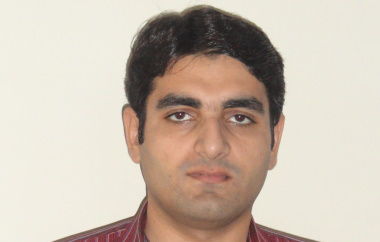PhD in Environmental Sciences
Current position: Chairman and Associate Professor at the Department of Forestry and Range Management, University of Agriculture Faisalabad, Pakistan
Research focus: forestry and agro-forestry, climate change, forestry and environment, afforestation of degraded lands
2017 Australian Endeavour Award (Scholarship)
2014-2015 Research Productivity Award of the Pakistan Council for Science and Technology
2007 Overseas scholarship for pursuing PhD in France from the Higher Education Commission, Pakistan
CV as submitted for the Green Talents award (2012):
Department of Forestry, Range Management and Wildlife, University of Agriculture Faisalabad, Pakistan
Research focus: sustainable forestry management, phyto-remediation potential of native tree species, carbon sequestration potential of agro-forests
Muhammad Farrakh Nawaz is a champion of Pakistan’s forests, promoting sustainable forestry management in his home country and tapping the power of forests to mitigate some of today’s biggest man-made environmental threats.
Muhammad Farrakh Nawaz has always been drawn to forests for their aesthetic beauty, recreational and inspirational value. An environmental scientist, he also knows the value of the ecosystem services they provide: air and water quality management, erosion control, climate regulation, carbon sequestration and the recycling of nutrients and wastes, to name a few.
Today Assistant Professor in the Department of Forestry, Range Management and Wildlife at the University of Agriculture Faisalabad, Nawaz is a champion of Pakistan’s forests, investigating the impact of human economic activity on forest ecosystems and ways to ensure forest health into the future. One example of this is his current work monitoring the performance of trees in degraded and compacted soils. Nawaz also sees forests as a huge resource for mitigating some of today’s biggest man-made environmental threats. “We have observed a big problem of heavy metal accumulation in the soil here in Faisalabad, one of the country's most industrialized cities,” reports Nawaz. “I am investigating the phyto-remediation potential of native trees species for treating soils contaminated with these metals.” Nawaz is also researching the carbon sequestration potential of Pakistan’s agro-forests – work that could very well have an impact beyond his country’s borders.
The jury recognized Nawaz’s work promoting sustainable forestry management in Pakistan and was keen to support his further research into forestry related remediation and climate change mitigation techniques.






